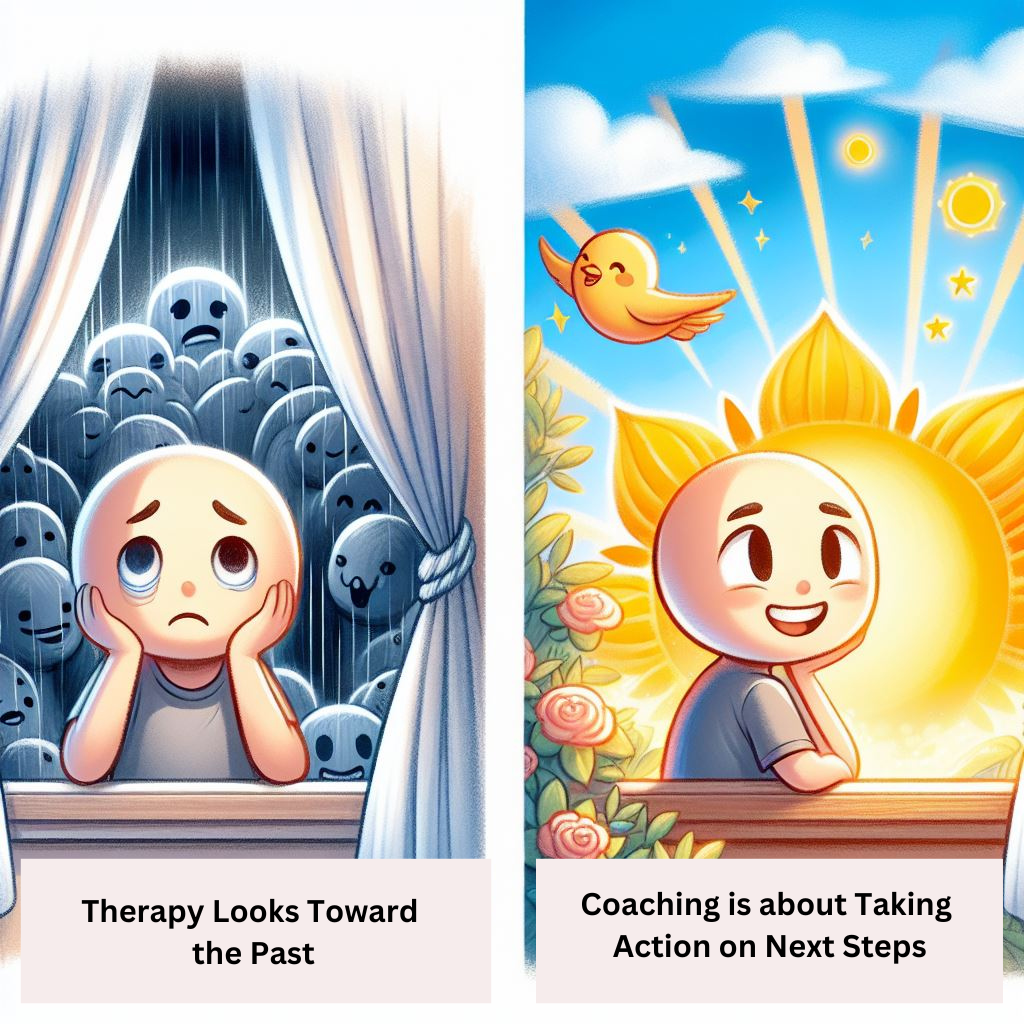Coaching and therapy are distinct disciplines, each serving different purposes and addressing various aspects of personal and professional development. Here’s a breakdown of the key differences and similarities between coaching and therapy:
The Differences
- Focus and Orientation:
- Coaching: Primarily future-oriented and goal-focused. Coaches work with clients to enhance their skills, achieve specific objectives, and optimize their potential.
- Therapy: Often past-oriented, with a focus on resolving emotional or psychological issues, addressing trauma, and promoting healing.

Other Differences:
Scope of Issues
- Coaches: Coaches generally focus on specific areas such as career development, leadership, communication skills, time management, and achieving personal goals.They do not diagnose or treat mental health disorders.
- Therapists are trained to diagnose and treat a wide range of mental health conditions, such as depression, anxiety, trauma, PTSD and disorders such as anxiety, depression, personality disorders.They work with individuals to explore deep-seated emotional and psychological issues.
Time Frame
- Coaching: Generally shorter-term and goal-specific, with a focus on achieving tangible outcomes within a defined time frame.
- Therapy: Can be shorter or longer-term, depending on the nature and complexity of the issues being addressed.
Similarities
- Client-Centered Approach:
- Both coaching and therapy involve a client-centered approach, where the practitioner tailors their methods to the unique needs and goals of the individual.
- Building a Relationship:
- Establishing a trusting and supportive relationship is crucial in both coaching and therapy.
- Active Listening:
- Both coaching and therapy practitioners employ active listening skills to understand and empathize with the client’s experiences.
Issues Addressed in Coaching:
Among the areas that can be addressed in coaching are:
- Career Development: Setting and achieving career goals, improving job performance, navigating career transitions.
- Leadership Development: Enhancing leadership skills, strategic thinking, and decision-making.
- Life Transitions: Coping with life changes, such as relocation, retirement, or changes in personal relationships.
- Personal Growth: Building self-awareness, confidence, and resilience.
- Skill Enhancement: Improving communication, time management, and problem-solving skills.
- Breaking through limiting beliefs
- Goal Setting & Achievement
- Finding more Purpose and Meaning in life

What to Expect in a Typical Coaching Session:
- Reflection: Encouraging self-reflection to enhance self-awareness and learning.
- Goal Setting: Clearly defining and refining goals and objectives.
- Action Planning: Developing concrete action plans to achieve the identified goals.
- Accountability: Holding the client accountable for taking specific actions and making progress.
- Feedback: Providing constructive feedback to support the client’s development.
The coaching process is collaborative and aims to empower individuals to take control of their lives and make positive changes. Sessions are typically forward-focused and action-oriented, helping clients unlock their potential and achieve their desired outcomes.